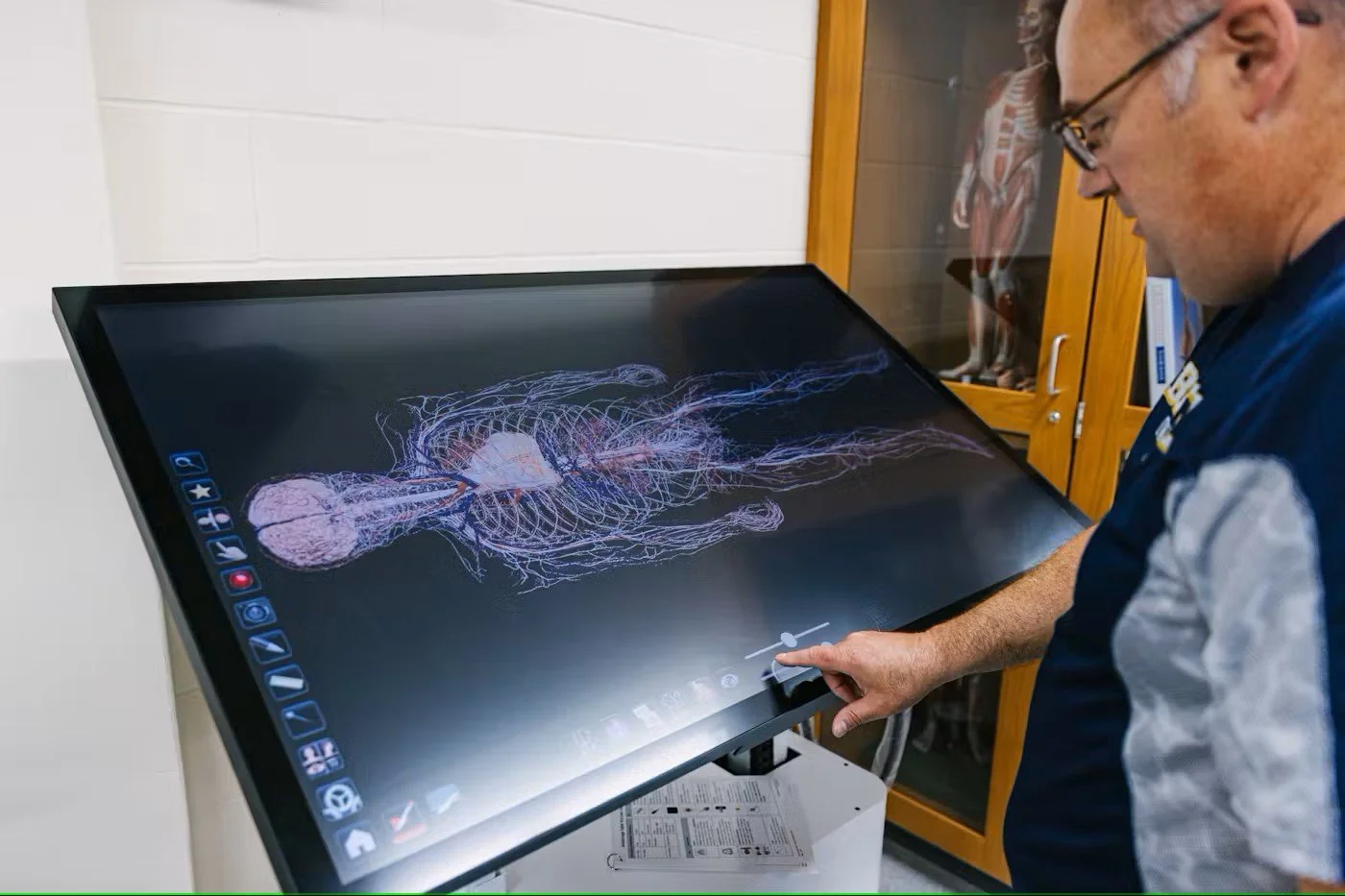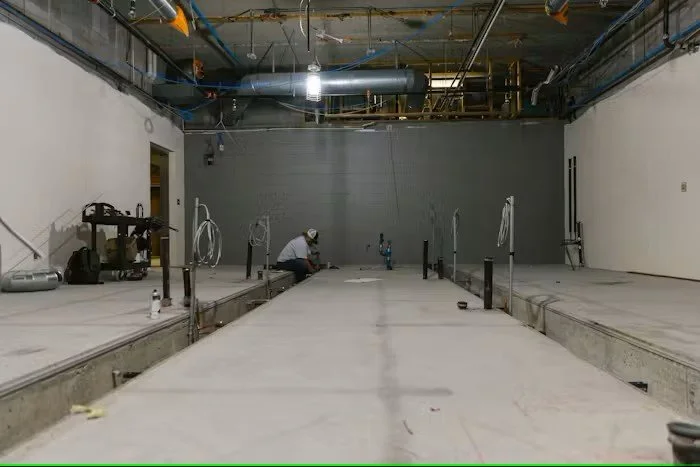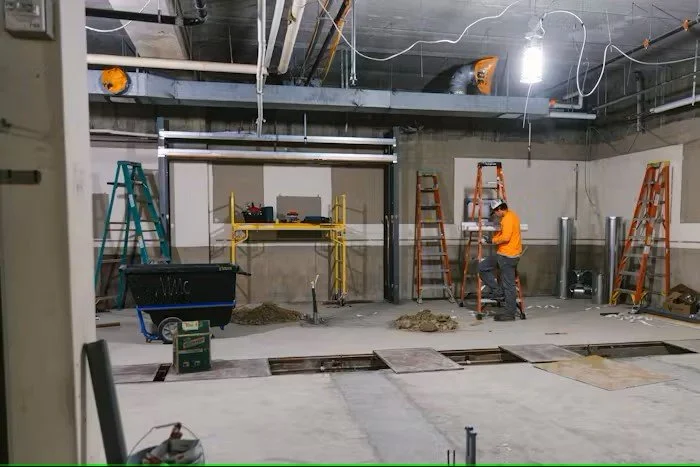A State-of-the-Art Transformation at Bethel University
The renovations to Bethel University's chemistry and biological sciences laboratories include new floors, benches, and lighting, as well as the latest video solutions and safety infrastructure. All images: Courtesy of Bethel University
Bethel University has taken a significant leap forward in enhancing its educational infrastructure with the $1 million renovation of its chemistry and biological sciences laboratories. Spearheaded by an unnamed donor's contribution, this project has revitalized four laboratories in the Barnes Academic Center (BAC), originally built in 1972, just in time for the 2024–2025 academic year. The renovations symbolize a broader commitment to advancing science education, equipping students with cutting-edge tools and fostering interdisciplinary collaboration.
A vision for innovation
This project builds on the momentum initiated four years ago with the opening of the Nelson-Larson Science Center, a three-story addition funded by another donor. Together, these efforts represent a comprehensive strategy to position Bethel at the forefront of undergraduate STEM education.
Brent Hoernemann, laboratory and safety coordinator for Bethel's Department of Biological Sciences, helped install the Anatomage Table, a life-sized virtual anatomy table that allows users to dissect mammal species without physical cadavers.
The highlight of the renovations is the inclusion of the Anatomage Table, a 3D virtual dissection tool regarded as one of the most advanced educational technologies available today. This life-sized virtual anatomy table exemplifies how the upgrades are designed not only to modernize but to transform the learning experience for over 600 students enrolled in science courses.
The labs, originally built in 1972, on the first floor of the Barnes Academic Center were demoed to make room for renovations.
“Department chairs and lab coordinators were key stakeholders, and therefore were heavily involved throughout the design process. They were the decision-makers when it came to prioritizing lab usage, equipment, and layouts,” say Mike Lindsey, Bethel’s director of campus planning and space management, and Glenn Hofer, director of campus maintenance, construction, and operations. “We were able to work with the contractors to design and build the most critical elements, and even were able to fit in some extra amenities, like the Anatomage Table, snorkel fume hoods, epoxy flooring, sliding whiteboards with storage behind, and updated classroom technology like monitors, projectors, speakers, wireless connectivity, and controls systems. Some of the items were part of the project budget, while others were purchased using department funds.”
Behind the scenes, meticulous planning ensured that the renovations progressed smoothly without disrupting ongoing research or coursework. Lindsey and Hofer emphasize the importance of minimizing disruptions. "As we were planning for this project, we knew that we had three things to balance. The first was lab interruption and needing so many days to complete the project within the summer months to be ready for Fall classes. Brent Hoernemann and Sarah Danielson (lab coordinators) helped us minimize disruptions to lab spaces by working around the lab schedules to find windows of open times to work. They even were able to get ahead of the summer months by emptying some of the lab spaces before the end of Spring semester. Sarah and Brent were instrumental in the success of this project!”
Technology and tools for tomorrow
The revamped labs feature an impressive suite of upgrades, including two additional fume hoods, a flow cytometer for biochemistry research, and several UV-VIS spectrophotometers. These improvements underscore Bethel’s commitment to providing students with access to industry-standard tools.
Demolition of the four science labs began in May 2024.
For chemistry and biology, the integration of shared research spaces marks a new era of collaboration. End user input was crucial to the design plan as well. “We do our best to listen well to faculty and staff, paying close attention to their programmatic needs and priorities,” say Lindsey and Hofer. “One of their desires throughout the design phase was to make two of the four labs flexible-use, so one semester they might be used for chemistry labs and the next semester for biology labs. We were able to provide the necessary systems, utilities, technology, and layouts to support a variety of lab courses, which we hope will set the departments up well to adapt to changing needs in STEM programming and advancements well into the future.”
Another standout addition is the dual-purpose flexible-use labs. Designed to accommodate either biology or chemistry courses depending on the semester, these spaces feature adaptable layouts, utility connections, and advanced classroom technologies, such as interactive whiteboards and wireless connectivity.
A safe and sustainable foundation
Safety enhancements were another priority, with new rooftop air handlers installed to improve ventilation, along with updated eye wash and shower stations to meet current lab codes. These features not only ensure compliance but also reflect Bethel’s dedication to creating a secure environment for students and staff.
Thanks to a generous donor, four chemistry and biology labs underwent $1 million worth of renovations.
The renovations also align with Bethel’s sustainability goals, incorporating energy-efficient systems and durable materials like epoxy flooring, which minimizes maintenance requirements.
As Bethel celebrates the completion of this transformative project, faculty and administrators are already looking to the future. “We are excited to occupy these new and improved labs, and to be able to show these beautiful spaces to prospective students and their parents,” says Amy Dykstra, professor and department chair of biological sciences, in a Bethel news story. “These upgrades will help us recruit new students and prepare our current students for graduate school and/or their future careers.”





